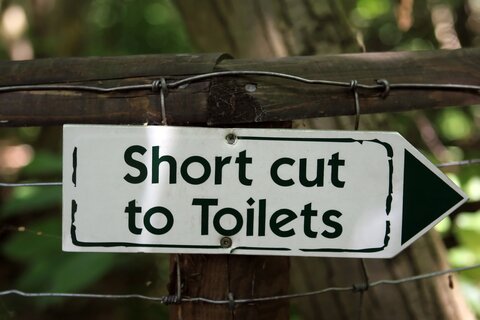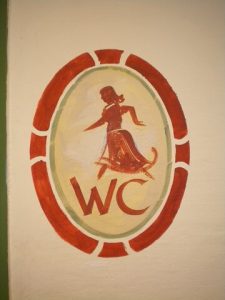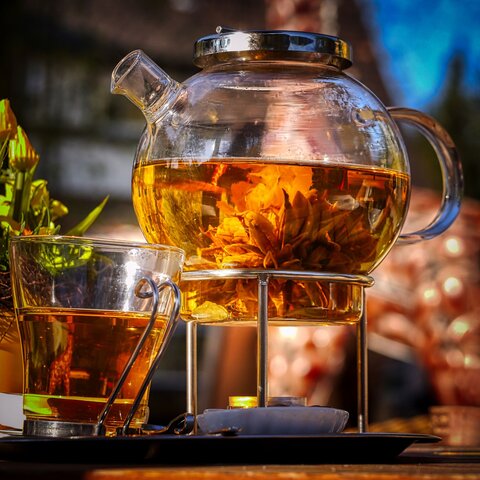Wild Waters – Cerridwen’s Menopause Medicine Wheel

Edwina Hodkinson Bsc(Hons) – Medical Herbalist
Member of the National Institute of Medical Herbalists
Edwina continues her journey around Cerridwen’s Menopause Medicine Wheel
The midlife woman looks out over the lake. The wind hits the water and it rushes in waves to the shore, bringing with it lost leaves and broken branches. Rain gushes down from the darkened sky, crashes into the lake and drenches the land. Yesterday it was calm like grey blue glass reflecting gentle clouds and the leafy oaks that dug deep roots into the shores of Llyn Tegid. Today its waters are wild and unpredictable. This is how the woman feels, her waters of emotion turbulent and swirling deep in her belly. Like the relentless rain she can’t stop crying, her moods are all over the place, crashing in a confusion of emotions. She can’t help how she feels, with low moods, anxiety, panic attacks, anger, grief and confusion, as well as all the tears. She’s tired, lethargic and can’t sleep, with all the night sweats and, to top it all, the endless trips to the toilet to pass water and the occasional leaks. She can’t even do star jumps at the gym anymore without wet knickers. Menopause seems like an imbalance of wild waters and it’s driving her mad.

Cerridwen as Goddess of transformation
Cerridwen watches her from the mystical island in the lake. She sees the woman over the turbulent waters of Bala knowing that as the woman journeys through the massive midlife rite of passage of menopause, her inner waters can be wild too as she transforms from the woman of reproductive years to the wise woman. Not only are her hormones changing, which can affect the stability of her emotions, but her body and life are changing too which can include relationships, parents getting old and dying and children leaving home for the first time, as well as changes in her body and health. Sometimes the woman feels deep grief for the loss of her reproductive years and the children she never had, giving her strange dreams and more tears. Cerridwen holds her and whispers words to give her support through this turbulent, changing time, knowing that this is all part of the transformative journey to being a wise elder woman. Whilst many of us acknowledge the emotional challenges, some of the more embarrassing problems are not always talked about and these can be bladder related with women noticing they want to pass urine more often, leakage, as well as finding they are more prone to urinary tract infections.
Bladder changes in Menopause
As women travel through menopause, oestrogen levels drop. We rely on oestrogen to keep the collagen in our tissues supple and feeling plumped up. This not only included the skin but other parts of the body too and this includes the urinary tract. Oestrogen also keeps the muscles on the pelvic floor and around the base of the bladder toned up and when the oestrogen drops, muscles lose their tone and problems occur. Some of the most common problems women struggle with are; Stress incontinence, Overactive bladder, Increased susceptibility to urinary tract infections and Prolapse of bladder or uterus.
Stress incontinence
How many of us older women would be reluctant to use a trampoline for fear of wetting ourselves, or worry with that big sneeze. Stress incontinence can be embarrassing and is the leaking of a small amount of urine when a woman laughs, coughs, sneezes or runs. This often causes women lots of embarrassment and is often not talked about. Many women find that this is linked to the menopause because oestrogen is often a contributing factor to keeping the sphincter muscle at the base of the bladder tight and as oestrogen levels decline, this muscle becomes weak and urine leaks.

Credit: Robert Owen-Wahl of Pixabay
Kegels These special exercises were developed by Dr Arnold Kegels in the 1940s and can be an excellent way of improving stress incontinence. These are basically pelvic floor exercises that repeatedly contract and relax the pelvic floor muscles and are intended to be done regularly in the correct manner. As well as strengthening the pelvic floor and helping to prevent stress incontinence, they can help counteract a dry vagina and help make sex more enjoyable. They can also be used to help prevent vaginal prolapse.
How to do kegels.
- Slowly raise your pelvic floor by contracting the muscles. Hold for a count of 5 and then let it down again. Work at this several times a day until you can hold it for a count of 15. Make sure you feel the muscles released before you let down your pelvic floor.
- The second part of the exercises involves quickly tightening and releasing the muscles of the pelvic floor as tight as you can. Do this about 30 times and take a break.
- Each session should consist of two sets of slow and 2 sets of fast exercises with a minute’s break in between.
- You can do these exercises either sitting in a chair or lying down.
- A way to find the correct muscles is to go to the loo and stop the urine flow.
- It may take six to eight weeks before you notice an effect.
There are lots of videos and advice on the internet that can help you do this correctly.
Kegels Exercises for Women – Complete BEGINNERS Guide – YouTube
Overactive bladder
Many women find they need to pass urine more frequently and may get little warning when they need to go, often struggling with leakage. An irritable and overactive bladder is increasingly common in us older women. Again Kegels can be really helpful in this, as well as bladder retraining, which is increasing the amount of time we wait to urinate as we are building up the strength in our bladder gradually. Other things that can help are double voiding, which is waiting a few minutes after urinating and going again to make sure that your bladder is completely empty. It also helps if you can maintain a healthy weight, as those extra pounds can put more pressure on the bladder.

Credit: Anna of Pixabay
Certain foods and beverages might irritate your bladder, including:
- Coffee and tea, even without caffeine
- Alcohol
- Certain acidic fruits — oranges, grapefruits, lemons and limes — and fruit juices
- Spicy foods
- Tomato-based products
- Carbonated drinks
- Chocolate
Urinary tract infections
Many herbs used for urinary tract infection can be used preventatively and therapeutically for acute and chronic infections. Many of them have modes of action that work in multiple ways. When treating a urine infection it’s good to consider anti-bacterial actions of herbs such as Bearberry and Yarrow along with the soothing herbs such as Marshmallow, Couch grass, Wild Oats, Mullein, Plantain and Corn silk. All herbs that are aromatic such as Buccu, Chamomile, Thyme and Yarrow are anti-bacterial.
If you are prone to continual infections, as the menopause can make you, then it’s worth thinking about improving the integrity of the bladder itself and looking at those strengthening herbs such as Horsetail and Bilberry as well as using Sea Buckthorn capsules, as this promotes collagen in the bladder.

Cranberries – Credit: Kristine Lejneice of Pixabay
Bilberry and Cranberry can help prevent bacteria sticking to the bladder wall itself and combined with lots of fluid, as in herbal teas, you can increase the flow of urine. Diuretic herbs such as Celery seed, Dandelion leaf, Buchu, Cleavers and Fennel can help support the flow of fluids and help to reduce toxins in the urinary tract.
If you do have continual urine infections, it’s worth supporting the body by cutting down on sugar, excess alcohol and caffeine, drinking more fluids and considering that sex can increase the likelihood of infection too.
If urine infections are persistent and make you feel physically unwell then it’s good to consult with a professional health care practitioner or doctor for help.
Bearberry – Arctostaphalos uva ursi
Bearberry is one of my first choices and herbs and can be used in combination with other helpful herbs that are mentioned above. I like to give this in a tea, as it encourages the drinking of more water and feels more soothing than a tincture. Bearberry is an evergreen shrub native to Europe, Asia, and North America. Its actions are: urinary antiseptic, diuretic, anti-microbial, anti-inflammatory, astringent, anti-hemorrhagic, anti-fungal, astringent, anti-lithic.

Credit: Albrecht Fletz of Pixabay
Bearberry is a premier urinary herb and specific for treating acute and chronic infections of the urinary tract and starts to work with maximum effect 3-4 hours after it’s ingested. It can be used for all parts of the urinary tract and is effective when combined with other herbs such as Echinacea and Yarrow as well as adding soothing herbs like marshmallow or corn silk. Bearberry can also be used for kidney, bladder stones and gravel. It is anti-inflammatory, being good to soothe inflammation of the urinary tract. It’s effective against many bacteria and fungi such as E Coli, Streptococcus faecalis, Salmonella, Staphylococus aureus and shingella.
Cautions: Not to be taken in pregnancy and for short-term use only.
Edwina
Edwina Hodkinson. BSc (Hons) MNIMH – Medical Herbalist and second spiral Priestess of Cerridwen

I have been a medical herbalist for 12 years, having graduated with a first-class degree in Herbal Medicine at Central Lancashire University. I work as a consulting medical herbalist in private practice in Bolton or via zoom, specialising in women’s health as well as working with community groups to help reconnect them to nature and the medicines growing around us. I also facilitate Wise Woman Rising workshops which help women to reconnect to the wise knowledge of menopause. I have a deep love for our native wild medicines and like to work with them as much as possible, which includes teaching local people about local herbs in a way that helps them reconnect to the world around them in a deeper way.
I have a background in nursing as well as having been a complementary therapist for over 25 years specialising in cancer care and working with the very sick. I am a forager, Clinical Reflexologist for 26 years, aromatherapist, Shamanic practitioner and Breath work coach.
websites: edwinahodkinsonherbalist.co.uk and weedsandwildmedicine.co.uk
Images by Edwina, unless otherwise credited
Medical Disclaimer
The Herbal Allies are shown here as part of a larger pharmacopoeia of herbs typically used by herbalists to support women during the menopausal transition and beyond and will be explored more in further articles. They are not prescriptive in any way, nor is it suggested you use them for particular issues and menopausal symptoms. Before using any herbs it’s best to consult with a Medical Herbalist or suitably qualified practitioner as not all herbs are suitable for all women and may interact with medications.